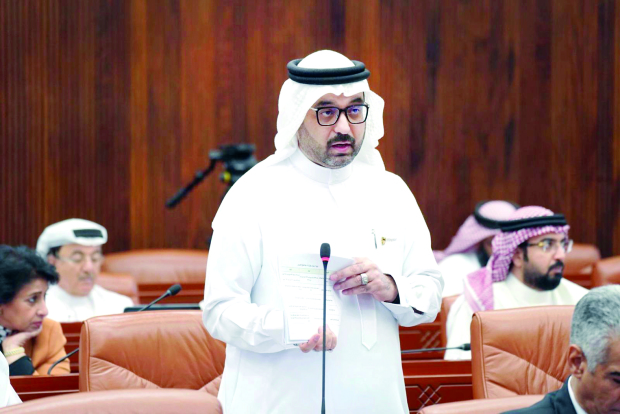A renewed call has been made by Bahraini legislators and municipal leaders to accelerate the long-stalled implementation of mandatory calorie labelling on menus in restaurants and cafés.
The health-driven regulation was first approved in 2018 but never enforced.
Despite Bahrain leading the region in proposing the initiative, neighbouring GCC countries – including Saudi Arabia and the UAE – have already enacted the policy.
In Saudi Arabia, the measure is being strictly enforced, with non-compliant establishments facing closures and the UAE has fully implemented it this year.
“We were the first in the region to propose this forward-thinking regulation, but today, every other GCC country has implemented it and we’re still waiting,” said MP Ahmed Al Salloom, president of the Strategic Thinking Bloc, chairman of Parliament’s financial and economic affairs committee, and board member of the Bahrain Chamber. “It’s time we moved beyond the planning stage and into proceeding with the proposal.”
Mr Al Salloom, who originally proposed the rule before its approval by the Cabinet, expressed frustration over the lack of tangible progress, attributing delays to the absence of a standardised methodology for calculating calories.

Mr Al Salloom
“This task should be outsourced to a specialised private company that can calculate calories, issue certifications, and conduct inspections – all at a reasonable cost. This would ensure accuracy while unburdening government departments from the technical demands.”
He proposed extending the grace period until December 2025 to allow time for the Industry and Commerce Ministry to establish a comprehensive framework and assign responsibilities to a certified contractor.
“The delay has gone on too long,” he added. “This step will allow us to finally implement the law and protect consumers.”
The issue goes beyond regulatory compliance, supporters suggest, it’s a public health concern. Recent official data indicates that nearly one-third of Bahraini teenagers are overweight or obese.
Health experts attribute this worrying trend to the widespread consumption of foods high in sugar, sodium and saturated fats many may be unaware they are choosing.
“The aim is to empower consumers to make informed choices,” said Mr Al Salloom.
“We already require calorie and nutritional information on packaged foods in supermarkets - it’s only logical to apply the same standards to prepared meals served in restaurants and cafés.”
He also cited gaps within Bahrain’s regulatory bodies.
“The Standards and Metrology Directorate doesn’t have a comprehensive calorie reference chart,” he claimed. “This leaves the Consumer Protection Directorate unable to enforce the regulation. We need a clear ministerial edict to provide direction and momentum.”
The Health Ministry had earlier revealed plans to go a step further - requiring not only calorie counts but also information on ingredients and fat content to be displayed on menus, signboards, websites and social media platforms.
This broader strategy aims to help consumers identify low-nutrition, high-risk foods and encourage healthier dietary habits.
Backing the parliamentary call, Capital Trustees Board vice-chairwoman and Bahrain Small and Medium Enterprises Development Society vice-chairwoman Khulood Al Qattan highlighted the significance of the policy from both a consumer rights and public health standpoint.

Ms Al Qattan
“People deserve to know what they’re consuming - whether it’s a packaged snack from the supermarket or a meal from a restaurant,” she said. “Implementing this rule would promote healthier lifestyles and align Bahrain with international food safety and health standards.”
Ms Al Qattan believes the move would also build consumer trust in the food and beverage sector.
“This initiative is about consumer protection and nurturing a more health-conscious society,” she added. “With the right partnerships and technical support, we can and should make this happen.
“It’s time for Bahrain to catch up with its GCC peers and make food transparency a national priority.
“The next step must come in the form of a ministerial directive, backed by a solid implementation plan involving public-private collaboration.”


&uuid=(email))